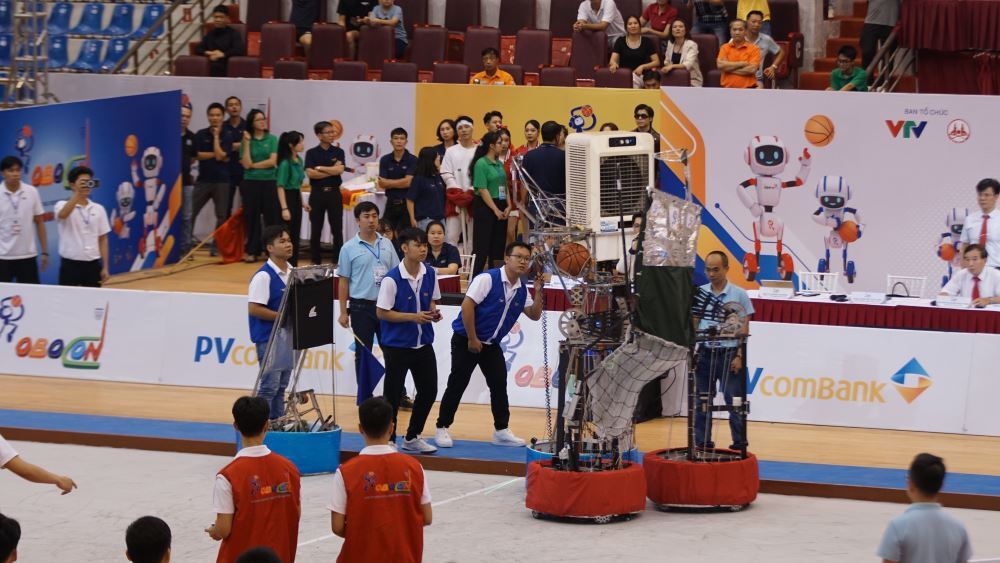Research
CONTENTS
Lac Hong University returns as national champion at Robocon 2025
Lac Hong University (LHU) has brilliantly clinched the championship title at Robocon Vietnam 2025 in Ninh Binh on June 13, 2025, after years of anticipation. This victory not only reaffirms the university's status as a "Robocon king" but also establishes LHU as Vietnam's sole representative at the ABU Robocon Asia-Pacific competition in Mongolia.

A Journey of Resilience and Unyielding Spirit
Throughout the competition rounds at the Ninh Binh Provincial Gymnasium, LHU's Robocon teams – LH-UDS, LH-WARRIORS, LH-TKCB, and LH-AS – demonstrated a dominant performance. Employing cool-headed strategies, seamless coordination, and resilience honed over multiple seasons, four out of five LHU teams advanced directly to the semi-finals. Notably, the LH-UDS team maintained an undefeated record throughout the entire season.
Dr. Lam Thanh Hien, Rector of Lac Hong University, proudly remarked: "This victory is not merely the outcome of one season; it is the sweet fruit of a journey spanning many years of nurturing, refining, and continuous rebuilding. This year's lineup combines the experience of previous generations with the fiery spirit of the new guard – forging a formidable team both strategically and in morale."
In the technological arena, LHU students combined their talent with their robots to create an emotional "symphony." They coordinated smoothly, executed precise strategies, and engaged fearlessly. Under the pressure of the intense final match, LHU's contestants competed with composure and tenacity, making split-second, accurate decisions, embodying the spirit of the ABU Robocon 2025 theme, "United in Conquest."

Driving Sustainable Impact Through Intellectual Competition
Lac Hong University's success at Robocon Vietnam 2025 is not just a sporting triumph; it is clear evidence of the university's sustainable contributions to education and society, particularly aligning with the United Nations Sustainable Development Goals (SDGs):
-
SDG 4 (Quality Education): Robocon serves as a platform that encourages students to demonstrate creativity, research capabilities, and the practical application of robotic technology. This directly enhances the quality of engineering education, fostering practical skills, problem-solving skills, and lifelong learning among students.
-
SDG 9 (Industry, Innovation, and Infrastructure): The competition is a powerful catalyst for industrial innovation and technological application. Students gain hands-on experience in the research, design, and manufacturing processes of robots, contributing to technological development and innovation within the country.
-
SDG 17 (Partnerships for the Goals): Robocon exemplifies effective partnerships among universities, businesses, and the community. This collaboration promotes knowledge transfer and collaborative innovation, creating a conducive environment for the sustainable development of the engineering sector and education.
LHU's victory at Robocon 2025 not only brought home the championship trophy but also ignited a golden era, affirming the university's commitment to training high-quality human resources and fostering a significant sustainability impact on the community and society.
"This victory is not just the result of one season; it is the sweet fruit of a journey spanning many years of nurturing, refining, and continuous rebuilding. It is the outcome of combining experience with a fiery spirit." – Dr. Lam Thanh Hien, Rector of Lac Hong University.

